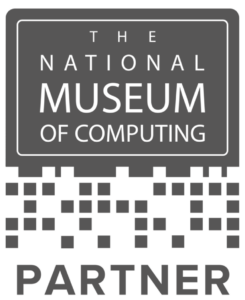A service management colleague once said that the best thing about attending itSMF UK Conference is that there is always something there to surprise. It could be an entire presentation or just an idea which is mixed in with conversations, or even a small nugget by way of a throwaway comment.
ITSM24 last November was no exception. Conferences like this are an opportunity to assess the state of play regarding service management and importantly (for me) to gauge what people think regarding education’s role which too often gets missed off in discussions.
It was a pleasure to have the opportunity to present about the Open University’s service management simulation, which is included in a module of the computing degree. Presenting at 9.00AM on the second day is always a challenge, but (all things considered) attendance was good and I would like to express my heartfelt thanks to those who decided it was an effective use of their time.
It was during ITSM24 that I also picked up on that ‘nugget’ – a casual comment which I’ll come back to later in this article.
It did set me thinking, though, about why we have been slow to take up teaching service management in our university system. Indeed the fact that service management is delivered primarily by training organisations is written into our history. It was because, initially, the techniques were likely to be more relevant to those already working in IT.
During the early days service management education focused on technical people exploring how best to deliver business-efficient systems which included a service element. But we have now reached critical mass in this regard, and those IT-related objectives have been fulfilled. What we should now be considering is how to disseminate this knowledge further afield, and especially to young people with no prior knowledge of the workings of IT.
It’s clear that we need to teach our students about IT service management. However, either through bad luck or bad judgement, we have only been able to include relevant material in a handful of university degree courses so far. The reason for this comes down to a complex mix of circumstances which have not been easy to unpick. What we know is that businesses need it, the service management industry wants it, and students deserve it. If we create the right environment, we already have the proof that it can work.
There is no doubt that the more technically-minded computing students need to have key elements of ITSM including in their degree, but some educationists argue that serving up too much can encourage them to switch them off. What they need is a trimmed down knowledge set which complements the material delivered on a traditional computing degree programme.
Three-fold approach
How then can we move this discussion forward? In my view it requires a three-fold approach based on being creative and thinking laterally.
- First, it is important that we deconstruct and understand university course structures (computing and business), examine pre-degree content and attempt to understand the nuances of the compulsory education curriculum to see how it all might knit together with service management material.
- Second, given the energy and work put into the original Professional Skills Management Framework (PSMF), which was devised by itSMF UK members working within the industry, it is important to consider how those roles and topics fit in with the content described in the university degree subject descriptors for both the computing and business domains.
- Third, the underlying support mechanism should be organised around Skills for the Information Age (SFIA), which contains the bread and butter profiles and definitions built into degree and training programmes.
Further to this, we should create a core learning environment which offers the basic knowledge of service management. This could be badged as a pre-degree qualification aimed at education level 3.
This will then lead onto creating a dedicated ITSM degree apprenticeship route to be delivered by the university sector. By designing a specialist degree for our industry, we can then start to think more creatively about a more robust continual development plan which is built upon knowledge gained in the degree.
How else can we support professionalism and embed this into an ITSM degree apprenticeship? Two complementary university disciplines offer some inspiration here: education and nursing. To explain, newly qualified teachers undergo substantive post-degree mentorship as they go out and teach in the real world. Established teachers monitor the new teacher and work with them so that they are able to develop their teaching skills in the classroom. Similarly, newly qualified nurses undergo a mentor-review process managed by established nurses who are already working in practice and hospitals. The review process goes towards proving that they are competent to deal with real-life patients.
Learning from teachers and nurses
As we know, huge emphasis is now placed on ‘the people factor’ in ITSM, so it is not beyond the bounds of logic that this is what we need for our industry. My suggestion, then, is that at the completion of the ITSM degree apprenticeship, students should be conferred with Newly Qualified Status (NQS) and undergo a similar process to teachers and nurses.
With the help of the service management community the NQS students could undergo mentoring and professional development activities which will take place over the following year. These activities would be monitored and logged and form part of the individual’s professional record.
At the end of that cycle the student would be encouraged to embark upon further continual professional development phased to work alongside their career. With a dedicated degree apprenticeship approach, students would have a sound knowledge of ITSM and business content which would form the bedrock of their knowledge. It would then lend itself to them embarking on a more proactive continual personal development cycle to take charge of their own career planning.
For example, if ITIL, PRINCE, SIAM, Agile, and ISO 20,000 were included in education at foundation level, we could start to shape up a more progressive continual development process that individuals would likely find more attractive. In other words, why not put foundation level material in mainstream education, and let the training community concentrate on more specialist learning? If we have a solid base of students with foundation knowledge, this will likely spawn interest for continual development and the market will naturally expand. As ITSM and business content will be delivered as part of the degree, it would likely be of interest to those students with a more passionate interest in business systems and/or business than perhaps trying desperately to force-feed ITSM to the more technically minded students, where computer science is their real passion.
As things stand, by trying to retrofit ITSM into traditional computing and business degrees, we run the risk of having too many gaps, too little engagement with academics and their deans of study, and little opportunity to explore career options for post-degree students. Creating a dedicated degree route would be a more expansionist approach and thus naturally create a wider range of options for ITSM professionalism in the round.
What this means is that post-degree students could (with advanced CPD routes and the support from the ITSM community) find a career path suited to their skills and attributes. For example, there would no doubt be routes for ITSM generalists, ITSM/business specialists, consultants or educators. It won’t have gone unnoticed that we do not have a mechanism to support those wishing to develop a career to teach ITSM either in schools or universities. This final point is a huge issue.
Thus, budding professionals would be able to focus on their attributes and interests and work towards collecting credits. If we get it right, it would provide a more solid base for the creation of a Service Management Chartered Status.
This type of plan could generate the energy needed to move ITSM forward in education. With an altruistic eye, it could create an environment where the department for education, the university sector and the service management community join together to make it work. Without key stakeholder engagement from all sides, it cannot work.
If we were really smart, we could find a way to integrate training course qualifications into post-graduate higher education awards like masters’ degrees. At Bolton and Northampton Universities, we proved that this was possible as the core ITSM qualifications were given credits off degree study. The degrees in both institutions were shored up with quality complementary material which extended and expanded the student’s knowledge beyond ITSM.
Back to the ‘nugget’
To finish, this takes us back to the ‘nugget’ mentioned earlier. At Conference I heard it said that universities and the training community are in competition with each other. The comment was quite shocking and without any firm basis of truth. Universities would not see themselves as competing with training organisations, because education has its ways of doing things, including its own mechanisms for how to include content. Some universities like degrees which are an easy sell to potential students and their parents or sponsors. Take it from me, building in material which is above and beyond the content described in the university sector subject descriptors is not easy to achieve. I have the scars. ITSM needs the right environment to flourish in a university. It requires an amenable set of academics to push it and certainly a dean of study who is willing to take a risk.
Based on evidence from what we have achieved already, we know that including ITSM in degrees is possible. I have witnessed my former students going on to achieve great things even from studying a small amount of ITSM material at undergraduate level.
With my considerable knowledge of writing and developing ITSM material for the university sector, I have already done the mapping for the ITSMF PSMF, and I have also developed a course outline for a dedicated ITSM degree apprenticeship which includes a CPD route. My latest challenge is to develop a basic course aimed at pre-degree level, which with the support from my colleagues at the Open University we may be able to deliver as part of our Open Learn Scheme.
It is obvious that we need to take a more pragmatic approach, and thus we have the potential to create new market spaces which will be of benefit to universities, employers and the ITSM community. We need to stop thinking in terms of this faux competition; we need to think more creatively and (importantly) we need to do the right thing for the next generation of learners.



